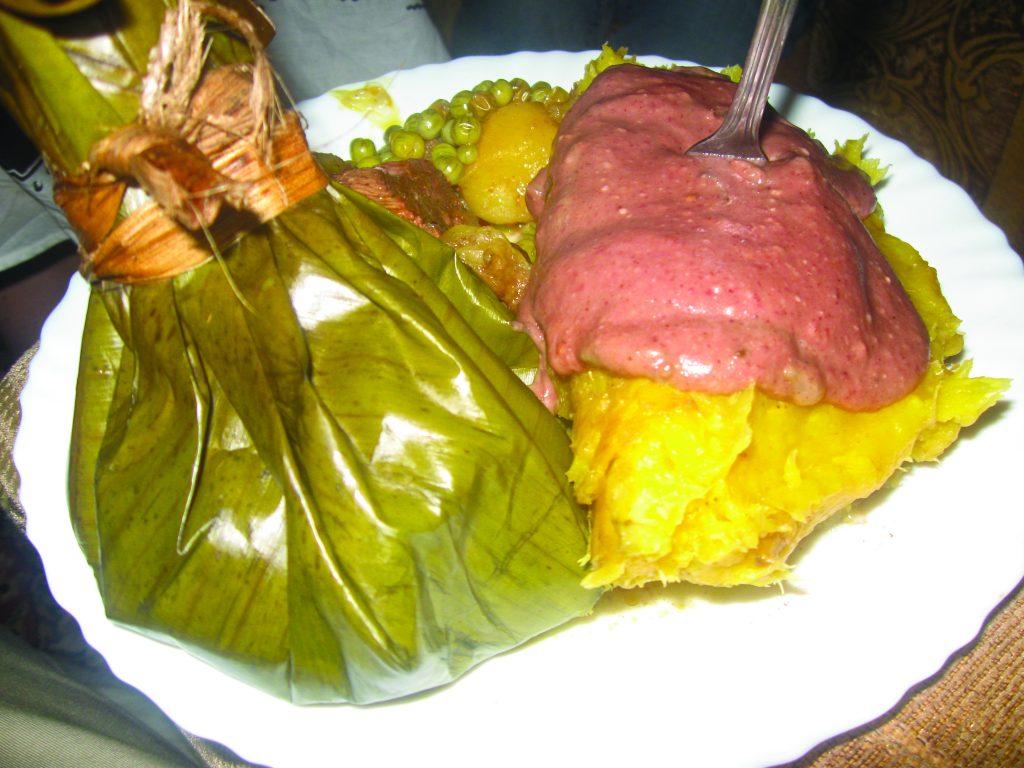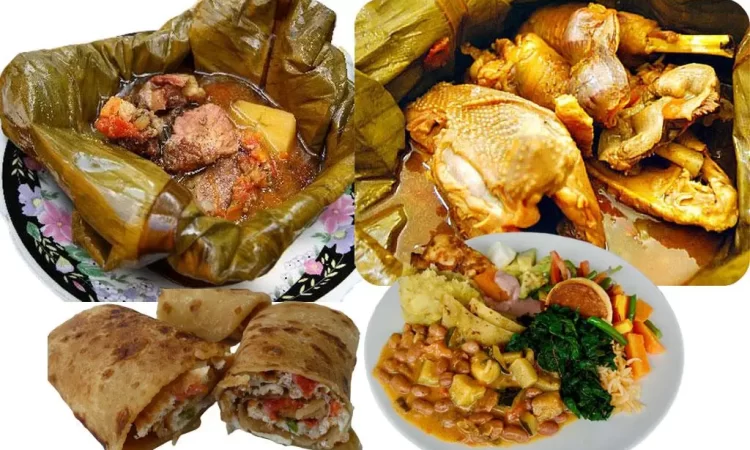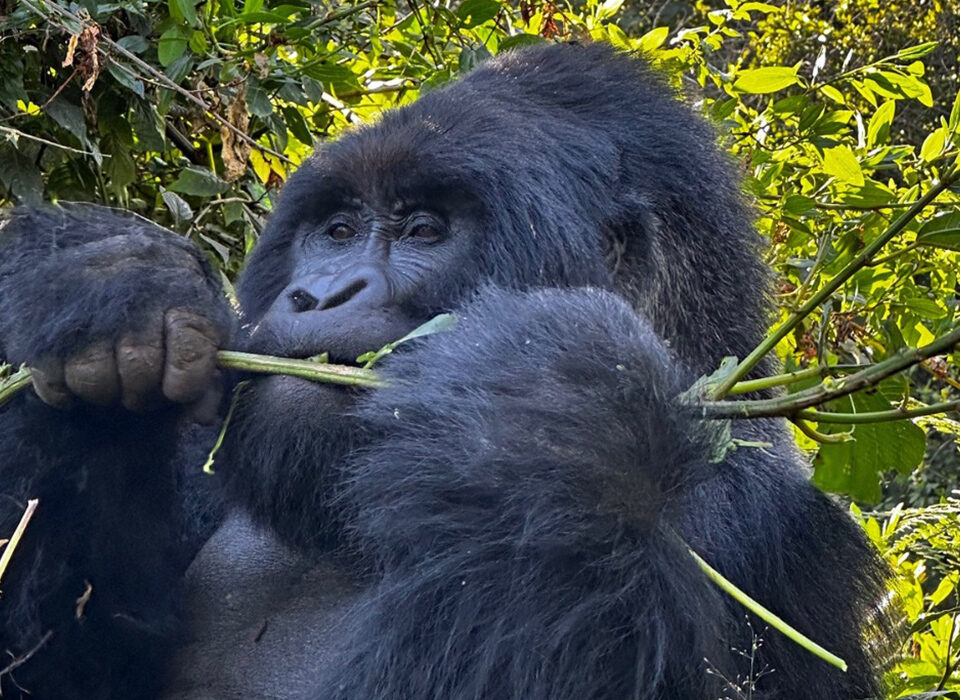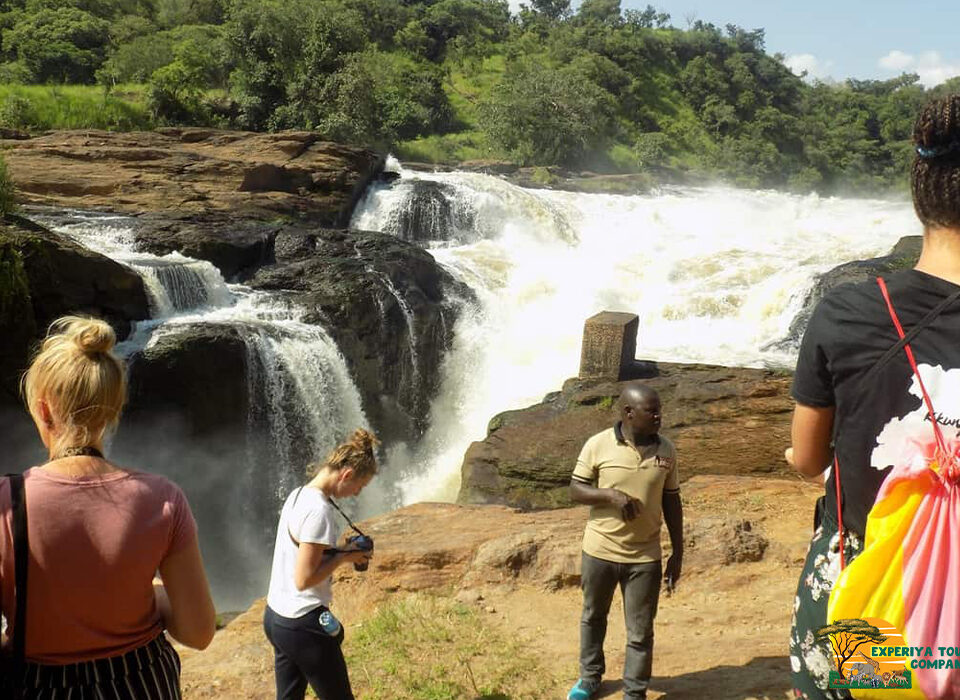
Uganda Safari for Families with Kids
November 20, 2025
Uganda Volcano and Gorilla Trek Tours
November 20, 2025Uganda Tours with Local Food Experiences
Uganda is celebrated for its wildlife, landscapes, and cultural diversity, but one of its most overlooked treasures is its cuisine. Ugandan food is flavorful, comforting, colorful, and deeply connected to the country’s cultural identity. Whether it’s a steaming bowl of matooke served with groundnut sauce, a freshly grilled roadside fish fillet beside Lake Victoria, or a cup of locally grown Arabica coffee from the highlands of Sipi, Uganda’s culinary scene is rich, authentic, and unforgettable. Uganda tours with local food experiences are now becoming a major travel trend, giving visitors an opportunity to taste their way across the country while discovering the traditions, stories, and people behind every dish.
Food is more than nourishment—it is a cultural language. In Uganda, it reflects the warmth of hospitality, the richness of agricultural land, and the unique customs of each tribe. Travelers who incorporate food experiences into their safari itineraries often say these moments become some of the most cherished memories of their journey. This detailed blog explores Uganda’s top local food experiences, culinary destinations, traditional dishes worth trying, cooking tours, food markets, and how to blend food exploration seamlessly into your Uganda safari or cultural trip.
Why Local Food Experiences Matter in Uganda
Food is an essential part of understanding Uganda’s history and culture. Almost every dish in Uganda has a story—how it is grown, where it originates, how it is served, and the meaning behind it.
Local food tours offer:
Authentic cultural immersion
Opportunities to interact with Ugandan families
Hands-on participation in cooking
Understanding of traditional farming methods
Tasting fresh ingredients directly from the source
A break from safari activities with slow, meaningful moments
For many travelers, these culinary experiences become a personal connection to Uganda’s heart.
Top Local Food Experiences on Uganda Tours
Traditional Ugandan Meals with Local Families
One of the most enriching experiences is visiting a Ugandan household to share a traditional meal. Families prepare dishes such as:
Matooke (steamed plantain wrapped in banana leaves)
Luwombo (slow-cooked chicken or beef stew steamed in banana leaves)
Posho (maize meal)
Sweet potatoes, yams, and cassava
Eshabwe (runny ghee sauce from western Uganda)
Guests often help with peeling plantain, pounding groundnuts, or serving food on banana leaves. This intimate experience offers insight into family rituals, mealtime customs, and the warmth of Ugandan hospitality.
Kampala Food Markets and Street Eats
Kampala’s food markets are vibrant, colorful, and full of life. They offer a sensory explosion—fresh fruits stacked in colorful pyramids, sizzling street grills, aromatic spices, and energetic vendors.
Popular markets include:
Nakasero Market
Kalerwe Market
St. Balikuddembe (Owino) Market
Travelers can sample:
Rolex (Uganda’s most famous street food—a rolled chapati with eggs and vegetables)
Grilled chicken skewers (muchomo)
Fresh tropical fruits like mangoes, passionfruit, pineapple, and jackfruit
Sim-sim (sesame) snacks
Boiled maize cobs
This experience is perfect for adventurous eaters who enjoy trying new foods in a lively atmosphere.
Lake Victoria Fresh Fish Experience
Along the shores of Lake Victoria, especially in areas like Entebbe, Jinja, and Kalangala Islands, visitors can enjoy freshly grilled tilapia or Nile perch served straight from the lake.
Top fish experiences include:
Grilled tilapia with lemon and local spices
Fish stew with coconut and vegetables
Deep-fried fish fillet served with chips
Fresh fish caught on a traditional canoe
Dining by the lake at sunset, with fishermen preparing their nets nearby, adds to the charm of this experience.
Food and Coffee Tours in Sipi
The highlands of Sipi Falls produce some of the best Arabica coffee in East Africa. Coffee tours in the region provide fully immersive experiences.
Travelers can:
Visit coffee farms
Pick ripe coffee cherries
Learn how beans are dried and roasted
Brew coffee traditionally over a charcoal stove
Taste freshly brewed Arabica coffee
This experience blends food, nature, farming, and culture beautifully.
Ugandan Cooking Classes
Cooking classes are one of the best ways to experience Uganda’s cuisine hands-on. Hosted by chefs, local families, or community groups, these classes teach travelers how to prepare traditional dishes.
Classes include:
Chapati-making
Preparing luwombo
Steaming matooke
Cooking groundnut stew
Making katogo (a flavorful breakfast dish)
Travelers not only learn recipes but also gain deeper understanding of Ugandan ingredients and culinary techniques.
Food Experiences in Western Uganda
Western Uganda is known for:
Fresh milk and yogurt
Ankole long-horned cattle traditions
Eshabwe ghee sauce
Sweet bananas
Millet-based dishes
Visiting Ankole cattle farms gives travelers insight into traditional herding, milking, and ghee-making.
Culinary Experiences Around Bwindi and Kisoro
These highland regions offer unique food traditions influenced by local crops and cooler climates.
Popular foods include:
Irish potatoes cooked in various styles
Vegetable stews
Sorghum-based meals
Fresh avocados, passionfruit, and honey
After gorilla trekking, enjoying a traditional meal in a rustic highland lodge feels especially rewarding.
Uganda’s Tropical Fruit Tastings
Uganda’s fruits are unbelievably sweet due to the rich volcanic soil and abundant sunshine. Travelers can enjoy fresh:
Pineapples
Mangoes
Papaya
Passion fruit
Watermelon
Avocado
Bananas of many varieties
Fruit markets make for perfect photography spots.
Signature Ugandan Dishes Travelers Must Try
A Uganda food tour is incomplete without tasting these national favorites:
Matooke with groundnut sauce
Luwombo (chicken, beef, or peanut stew)
Rolex
Muchomo (grilled meat)
Katogo
Posho and beans
Chapati
Eshabwe
Local fish curry
Palm wine (tonto or malwa)
Each dish reflects the region it comes from and the stories of the people who prepare it.
How to Combine Food Tours with Safaris
Uganda food tours blend perfectly with wildlife safaris. Travelers can:
Enjoy a traditional lunch after gorilla trekking
Take cooking lessons on the shores of Lake Bunyonyi
Visit cattle farms near Lake Mburo
Enjoy fresh fish after a boat cruise in Murchison Falls
Taste roadside fruits on the way to Queen Elizabeth
Combine Kampala street food with city tours
Food becomes part of the overall travel experience rather than a separate activity.
Best Regions for Food-Focused Tours in Uganda
Each region of Uganda offers unique culinary highlights:
Central Uganda (Kampala, Entebbe): Street food, markets, modern cuisine
Eastern Uganda (Jinja, Sipi): Coffee tours, local fish, banana dishes
Western Uganda (Mbarara, Bwindi): Milk, ghee, matooke, sorghum meals
Northern Uganda (Gulu, Karamoja): Smoked meats, millet bread, cultural dishes
Southern Uganda (Kabale, Kisoro): Potatoes, vegetables, highland meals
Exploring Uganda through regional flavors offers diversity and insight into the country’s cultural tapestry.
Tips for Food Travel in Uganda
Stay curious—try new dishes and engage with chefs
Visit food markets with a guide for safety and translation
Drink bottled water unless treated
Choose well-prepared street food from busy vendors
Bring an appetite—portions are usually generous
Ask locals about their favorite dishes
Ugandan food is hearty, flavorful, and full of tradition.
Why Uganda Food Experiences Are Unforgettable
The magic of Uganda’s food lies in:
Fresh ingredients grown locally
Hands-on cooking traditions
Farm-to-table connections
Warm hospitality
Cultural storytelling
Unique dishes found nowhere else
Food experiences deepen the safari in ways that sightseeing alone cannot.
Book Your Uganda Food and Safari Experience with Experiya Tour Company
For travelers wanting to combine Uganda’s breathtaking wildlife with rich culinary experiences, Experiya Tour Company offers perfectly curated itineraries that blend culture, food, and adventure. With expert guides, local food stops, cooking classes, farm visits, and immersive cultural encounters, Experiya ensures you taste the true essence of Uganda. Book your Uganda food experience tour with Experiya Tour Company and discover why the flavors of the Pearl of Africa stay with you long after the journey ends.




